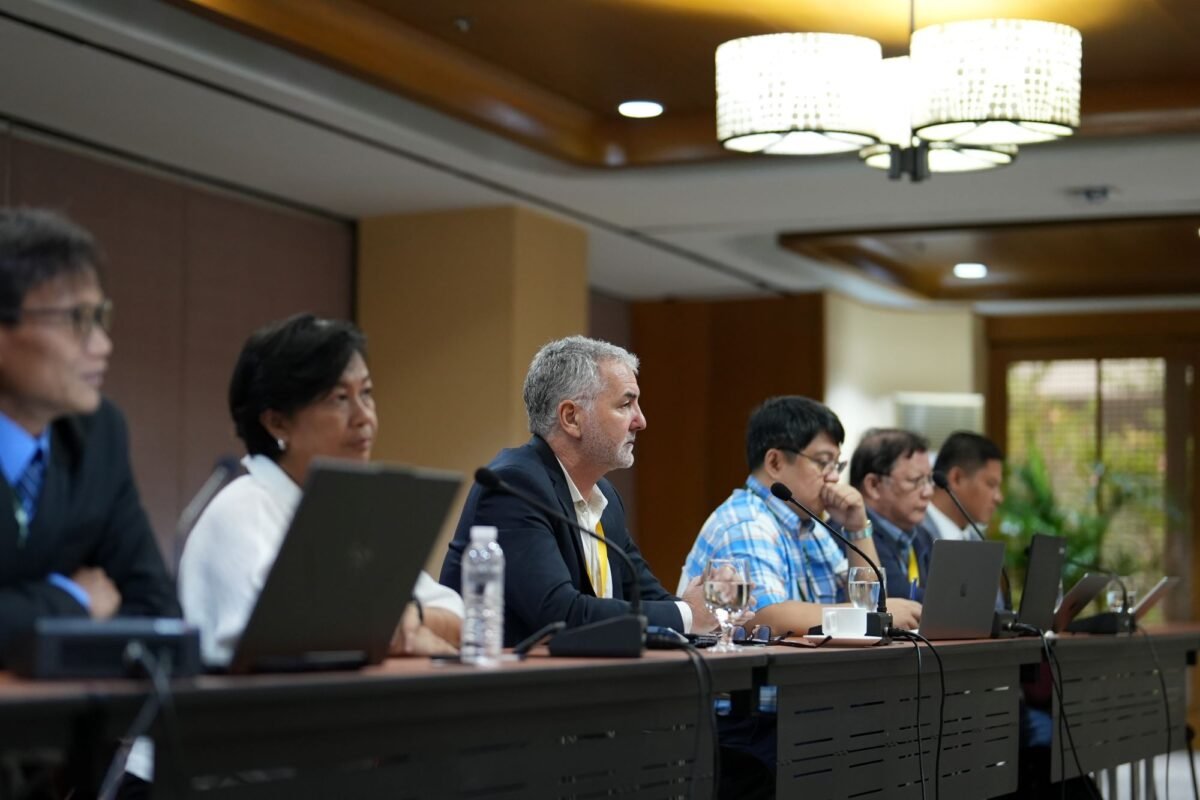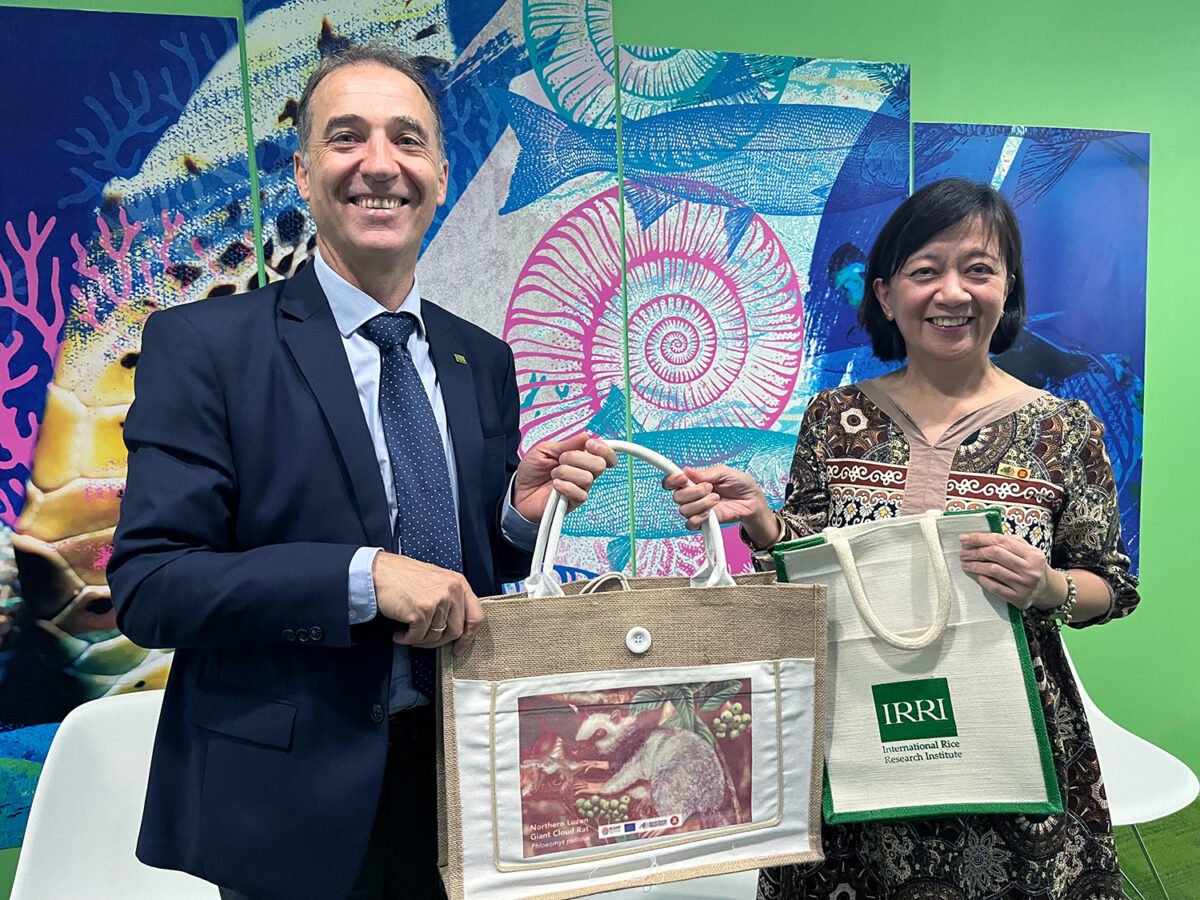IRRI, DA-PhilRice, and PCIC team up for innovative crop insurance for rice
The IRRI-PhilRice-PCIC tripartite partnership will bring innovative crop insurance products to improve the resilience of Filipino farmers to climatic risks.
The International Rice Research Institute (IRRI), the Philippine Rice Research Institute (DA-PhilRice), and the Philippine Crop Insurance Corporation (PCIC) are collaborating on the development of an area-based yield index insurance for rice based on satellite data. This will help improve Filipino farmers’ resilience to climatic risks.
The memorandum of agreement was signed during the 6th International Rice Congress on 19 October 2023 at the Philippine International Convention Centre (PICC), Pasay City, Philippines.
This partnership builds upon an earlier collaboration between IRRI and PhilRice that developed and operationalized a satellite-based rice mapping and monitoring system called PRISM (Philippine Rice Information System). Operational since 2018, PRISM uses Synthetic Aperture Radar (SAR) satellite images and a smart detection system to map rice planting areas and planting dates. Using crop growth simulation modelling, it provides timely yield forecasts and end-of-season rice yields.
PRISM data will be used in designing and testing an Area-Based Yield (ARBY) index insurance for rice. ARBY is a type of crop insurance that provides coverage based on historical average yield of a specific geographic area, rather than individual farmer’s yields, to determine payouts in the event of crop losses.
“The fusion of satellite technology and advanced modelling is revolutionizing how we can insure rice crops. With timely insights into yield forecasts and end-of-season yields, satellite-based ARBY index insurance for rice can help simplify the much-needed coverage for smallholder farmers, paving the way for a more resilient and sustainable future for agriculture,” said Dr Ajay Kohli, Interim Director-General of IRRI.
The agreement seeks to help make crop insurance products available to some 2.4 million rice farmers in the Philippines who constantly have to face the risks of losing their yields due to calamities such as tropical cyclones, droughts, and floods. On average, the country experiences around 20 cyclones every year, with at least eight making landfalls. Climate change also poses a significant threat as it makes the impact of calamities like floods and droughts more severe.
“This partnership is a step toward making insurance protection available to Filipino farmers at a crucial time when we are facing severe weather challenges such as droughts and floods, intensified by climate change. We welcome this collaboration as it aligns with our mission to improve the well-being of rice-farming communities in the country,” said Dr John de Leon, Executive Director of PhilRice.
“At PCIC, we appreciate these innovative solutions that can bring about greater efficiencies in our operations compared to the traditional indemnity-based crop insurance model which involves manual visits and verifications for each claim. By leveraging modern technologies, we can provide better insurance products and services to farmers,” said Atty. Jovy Bernabe, President of PCIC.
This collaboration is supported by the CGIAR initiative on Climate Resilience (ClimBeR) which aims to transform the climate adaptation capacity and increase the resilience of smallholder production systems to withstand severe climate change effects in six countries including the Philippines.
The IRRI-PhilRice-PCIC tripartite partnership will bring innovative


